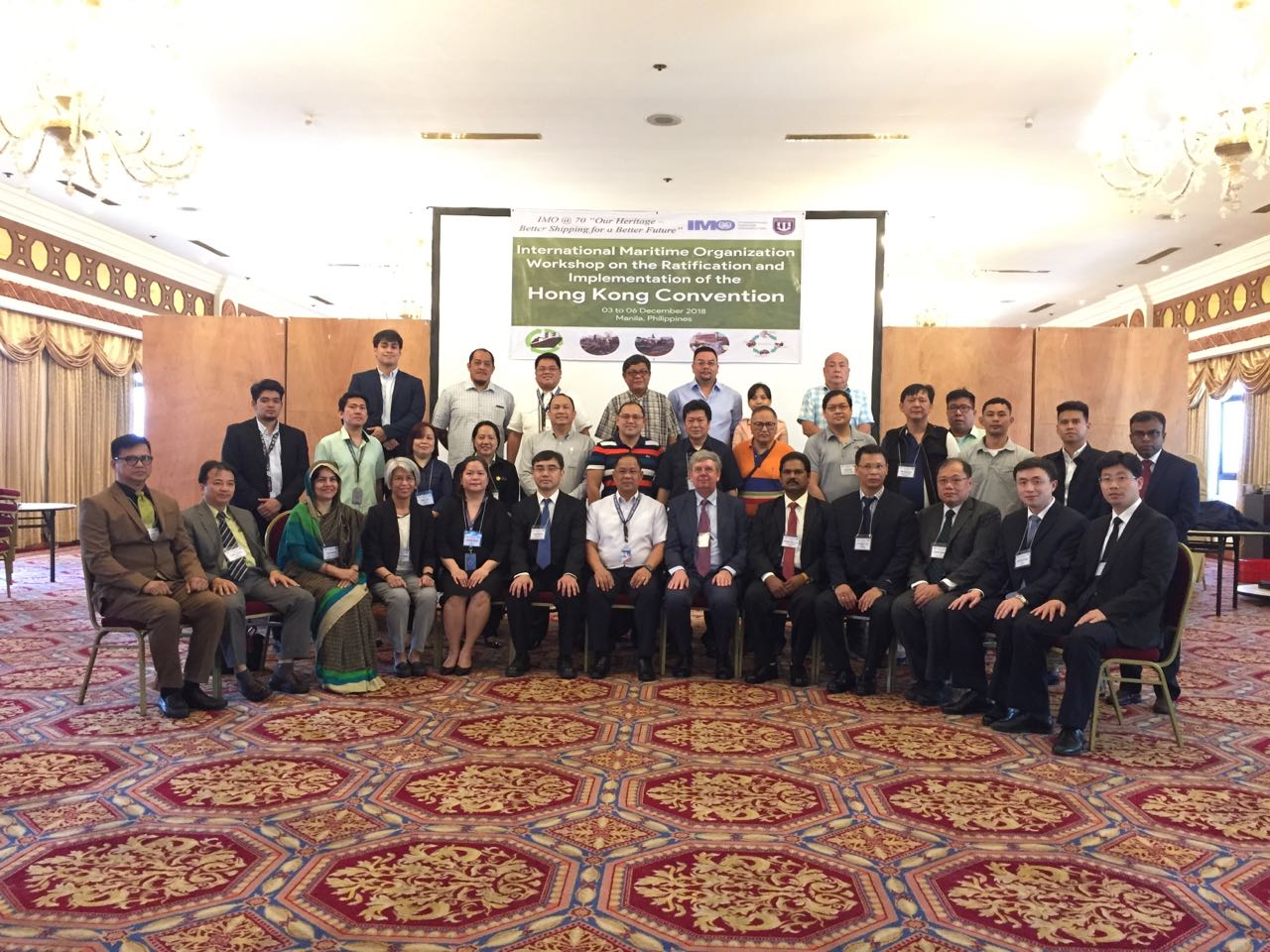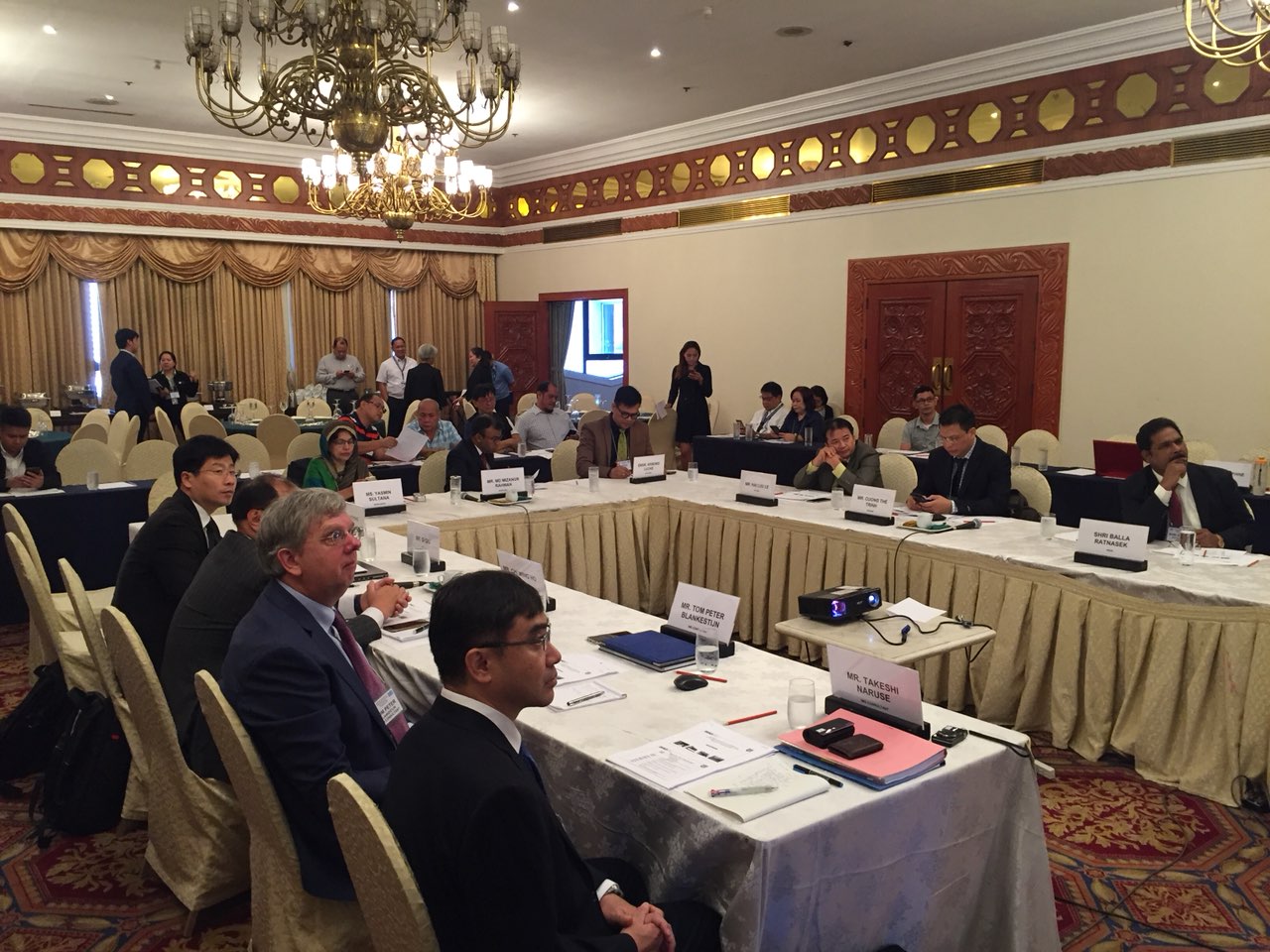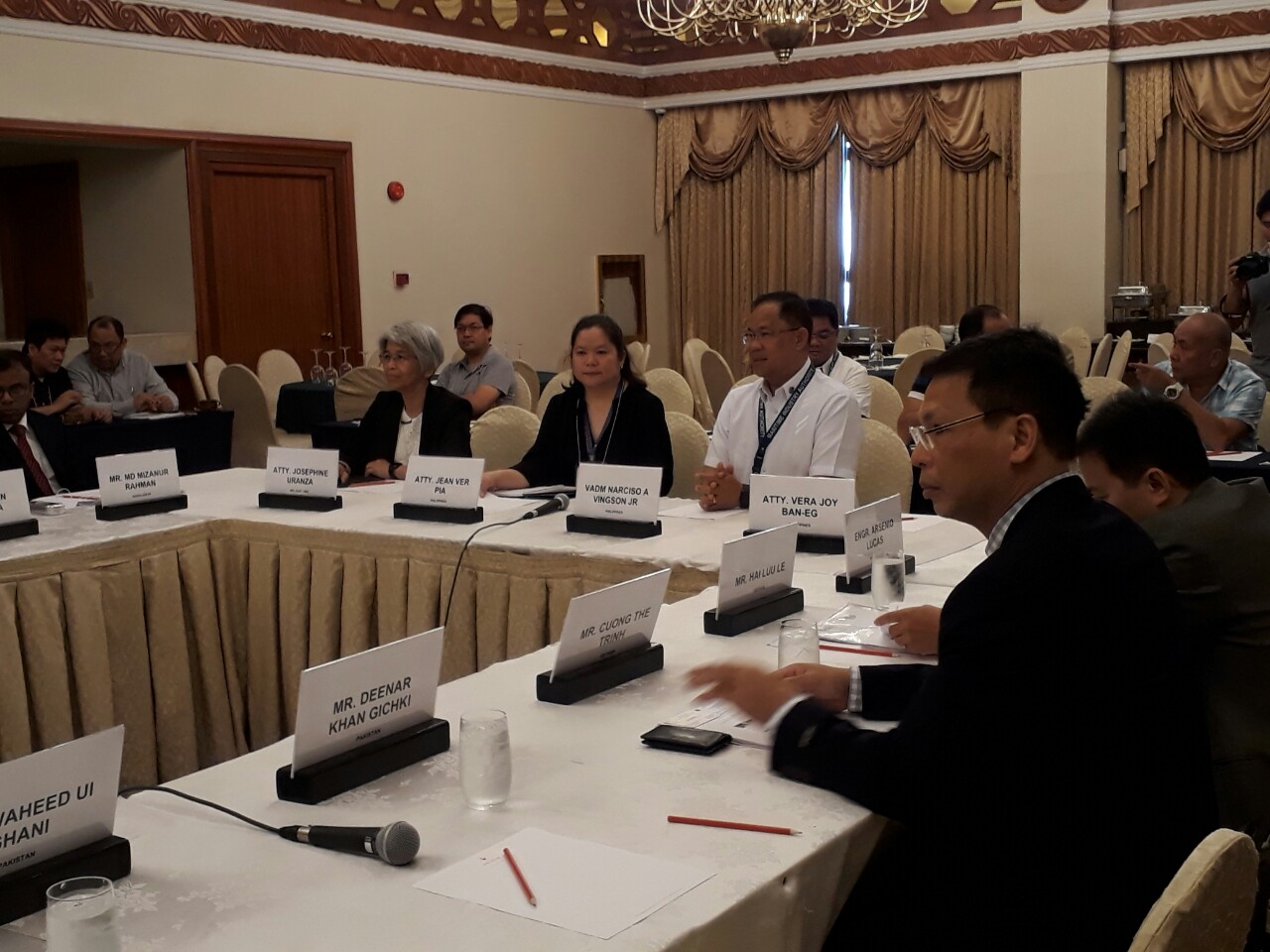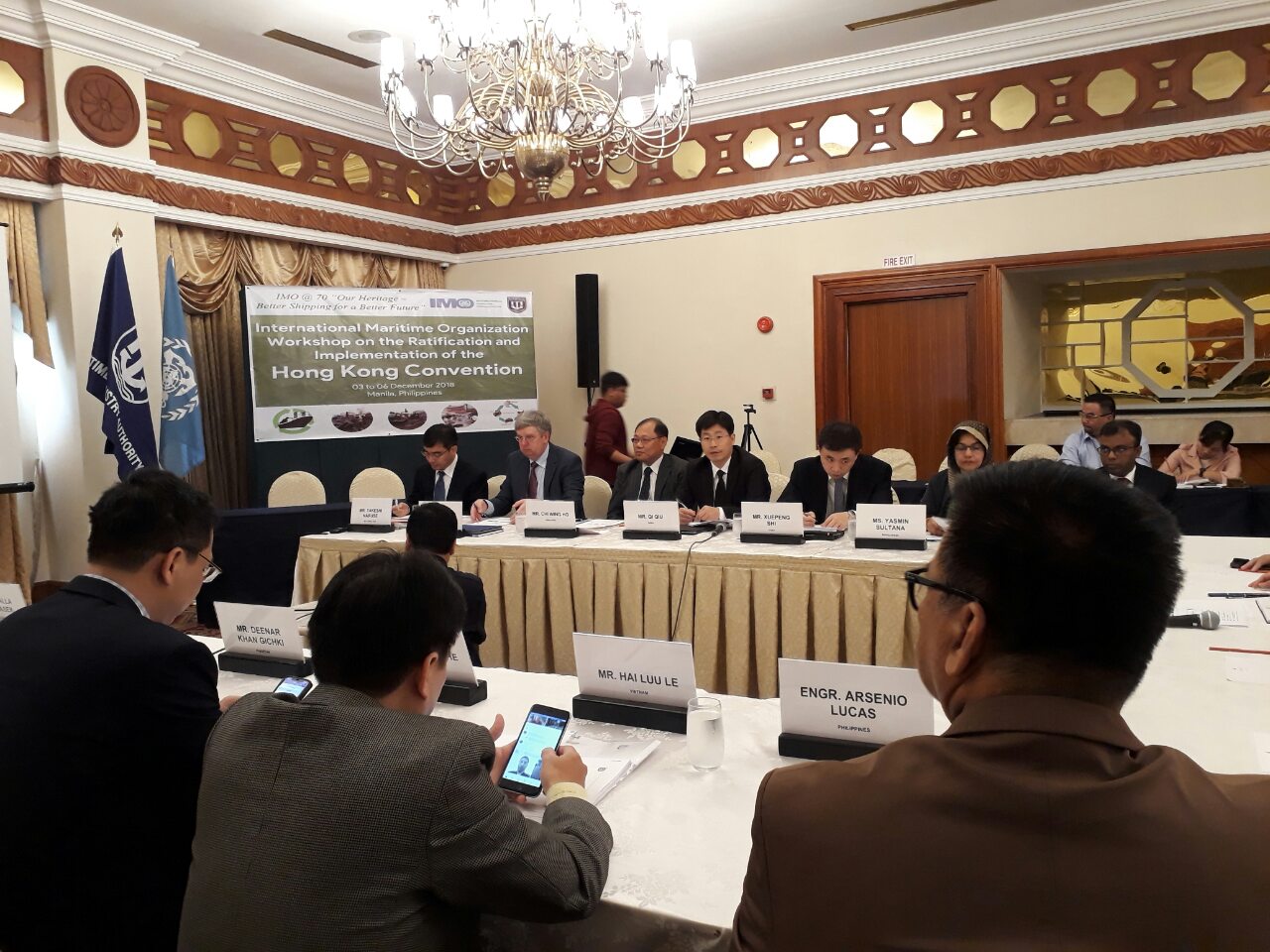MANILA, PHILIPPINES – The Philippines, through the Maritime Industry Authority (MARINA), hosted the International Maritime Organization (IMO) Regional and National Workshop on the Ratification and Implementation of the International Convention for the Safe and Environmentally Sound Recycling of Ships, 2009 otherwise known as the Hong Kong Convention.
Attended by participants from Bangladesh, China, Hong Kong, India, Viet Nam, Pakistan and the Philippines, the regional workshop capacitated the IMO Member States for their eventual ratification, implementation, and enforcement of the Convention. The workshop was delivered in Manila under the IMO Technical Cooperation Program, facilitated by various international maritime experts.
MARINA Officer-in-Charge Vice Admiral Narciso Vingson Jr emphasized that the Philippines recognizes the importance of this platform in reinforcing the spirit of responsibility and solidarity among IMO member states that bear equal obligations in maintaining the highest standards in maritime safety, prevention of marine pollution, and shipping navigation and trade.
Atty. Josephine Marie Uranza, IMO Regional Presence for Technical Cooperation in East Asia, said the Hong Kong Convention is the only workable instrument of ship recycling currently available for international shipping.
“We are now looking forward for more countries to start the ratification process and see that the entry into force conditions will be met. The widespread knowledge and the involvement of the major ship recycling countries will be key for the successful discussions,” Atty. Uranza said.
The regional workshop served as an avenue to raise awareness on various issues related to the Hong Kong Convention, to become more familiar with the international regulatory requirements related to the Convention, to provide the best practice for the safe and environmentally sound recycling of ships, and to seek the way forward for participating countries to ratify the Convention.
The national workshop, on the other hand, is a collaboration effort of the stakeholders such as the Department of Environment and Natural Resources (DENR), Philippine Coast Guard (PCG), University of the Philippines Marine Science Institute (UP MSI), Shipyards Association of the Philippines (ShAP), Society of Naval Architects and Marine Engineers (SONAME), as well as steel recyclers and companies responsible in the disposal and handling of waste.
Discussions on the role of each stakeholder in the implementation of the Hong Kong Convention in the domestic shipping, as well as the advantages and contributions of the ship breaking business in the Philippines were specifically covered in the national workshop.
The IMO is a specialized agency of the United Nations responsible for the global regulation of international shipping. The IMO adapted the Hong Kong Convention to ensure that ships, when being recycled after reaching the end of their operational lives, do not pose any unnecessary risks to human health and safety, as well as to the environment.
The Hong Kong Convention intends to address pressing issues around ship recycling, including the fact that ships sold for scrapping may contain environmentally hazardous substances such as asbestos, heavy metals, hydrocarbons, ozone-depleting substances, and others.




###


